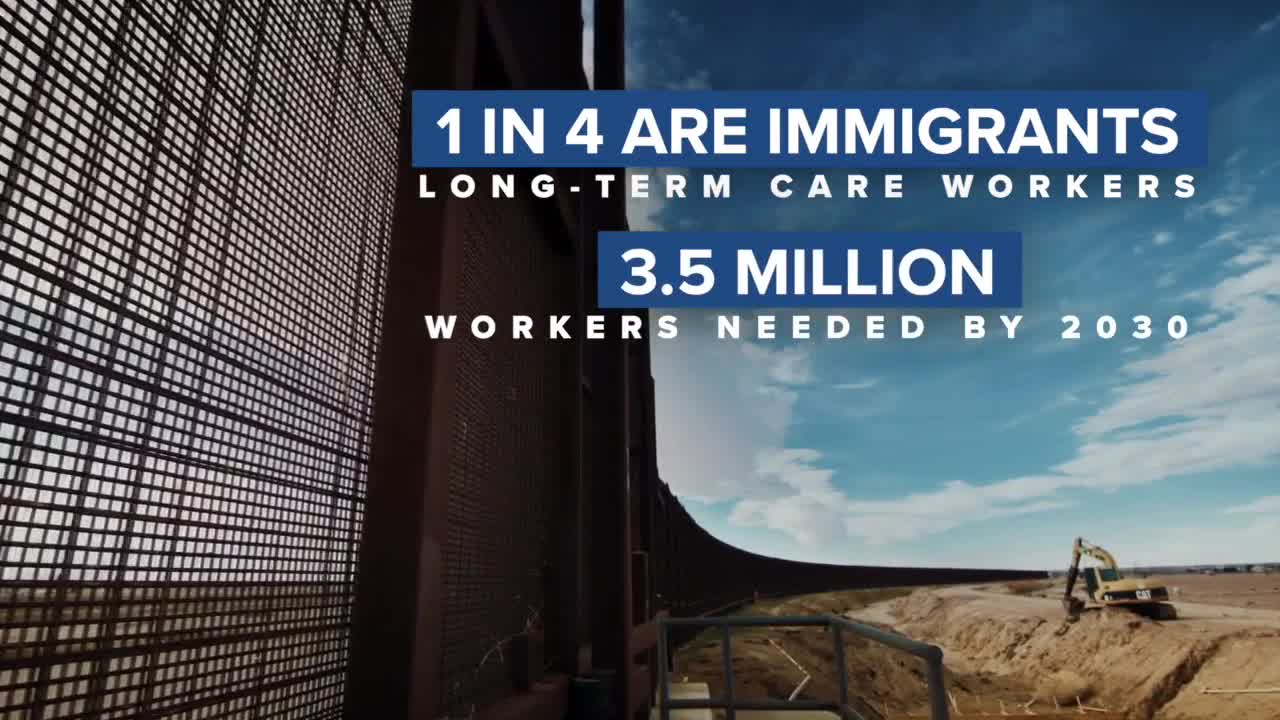A Mexican citizen, who wants to be known only as Esther, overstayed her visa more than a decade ago.
She says she stayed in Arizona because of her home country’s violence and lack of work opportunities.
She works as a caregiver for seniors. She’s one of millions living in the U.S. without legal permission and trying to stay under the radar. She now faces possible deportation. Her story illustrates the clash between immigration policy and a growing senior healthcare crisis.
Esther agreed to speak to ABC15 without showing her face, fearing revealing her identity would jeopardize her upcoming detention hearing.
“I really consider the United States my home and my safe place. I love this country. I really want to stay here,” she said.
It was while she was trying to stay under the radar that she said she was stopped by police earlier this year on her way to work.
“I was shaking. I was crying because when he asked me for my name and my social security, and he told me, get out of the car. I was sure that he was going to take me to ICE, and that’s what happened.”
Esther says she spent time at the detention center in Eloy before being released on bond with an electronic ankle monitor. She has a September court hearing in immigration court.
“I just feel like they're watching me all the time. I don't feel like, literally, like free right now,” she said.
Groups like the American Business Immigration Coalition are pushing for President Donald Trump to provide a legal work program for people like Esther, who work in industries with labor shortages.
The group says the U.S. faces a growing senior care crisis with one in four long-term care workers being an immigrant. Projections are that 3.5 million more healthcare workers are needed overall by 2030.
“Immigration law is pretty tough in the sense that there's very few applications or relief ways that people could avoid being removed,” said Zach Brugman, a Phoenix immigration attorney who doesn’t represent Esther.
As for her chances of being able to stay in the U.S.?
“Based on what you're telling me? I don't think she has much chance at all under this administration,” he said.
In the past, many people like Esther were likely to have their deportation cases closed under what’s called prosecutorial discretion, meaning they could stay in the United States, he said. But that’s not necessarily the case anymore.

ABC15 is committed to finding the answers you need and holding those accountable.
Submit your news tip to Investigators@abc15.com
The White House responded to ABC15’s request for comment on this story, saying in a statement:
“There is no shortage of American minds and hands to grow our labor force.”
The statement goes on to say:
“Since President Trump took office, 100% of job gains have gone to native-born American workers. President Trump will continue growing our economy, creating opportunity for American workers, and ensuring relevant sectors have the workforce they need to be successful.”
As for Esther, she said she has no plans to leave voluntarily. She’s hoping to convince a judge to allow her to stay and remain in her job as a caregiver.
“Hopefully they give me the opportunity, and they give me a chance to prove that I can be a good person and a good citizen,” she said.
The ABC15 Investigators will continue to follow Esther’s case.
Email ABC15 Investigator Anne Ryman at anne.ryman@abc15.com or connect on X, formerly known as Twitter, and Facebook.




